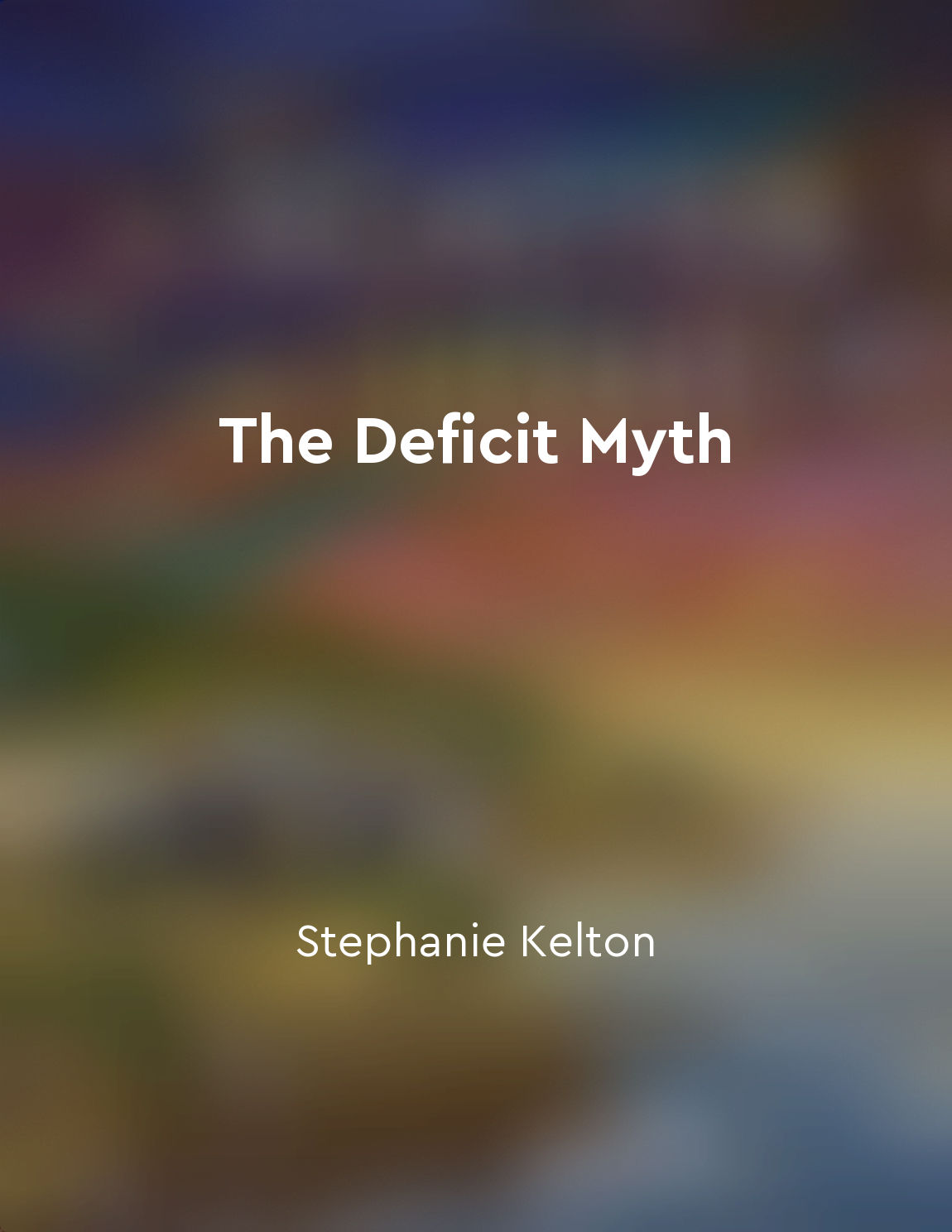Fiscal policy can be used to achieve social and economic goals from "summary" of The Deficit Myth by Stephanie Kelton
Fiscal policy is a powerful tool that the government can use to achieve social and economic goals. By adjusting its spending and taxes, the government can influence the overall level of economic activity in the country. For example, during times of economic downturn, the government can boost spending to stimulate demand and create jobs. This can help to reduce unemployment and support economic growth. On the other hand, during times of high inflation or economic overheating, the government can reduce its spending or increase taxes to cool down the economy. By making these adjustments, the government can help to stabilize the economy and prevent it from overheating or falling into recession. In addition to managing the overall level of economic activity, fiscal policy can also be used to achieve specific social goals. For example, the government can use its spending power to invest in areas such as education, healthcare, and infrastructure. By doing so, the government can improve the overall well-being of its citizens and create a more inclusive and prosperous society. Furthermore, fiscal policy can be used to address income inequality and promote social justice. By implementing progressive tax policies and targeted spending programs, the government can help to redistribute wealth and ensure that the benefits of economic growth are shared more equitably among all members of society.- Fiscal policy is a versatile tool that can be used to achieve a wide range of social and economic goals. By harnessing the power of government spending and taxation, policymakers can shape the direction of the economy and create a more just and prosperous society for all.


